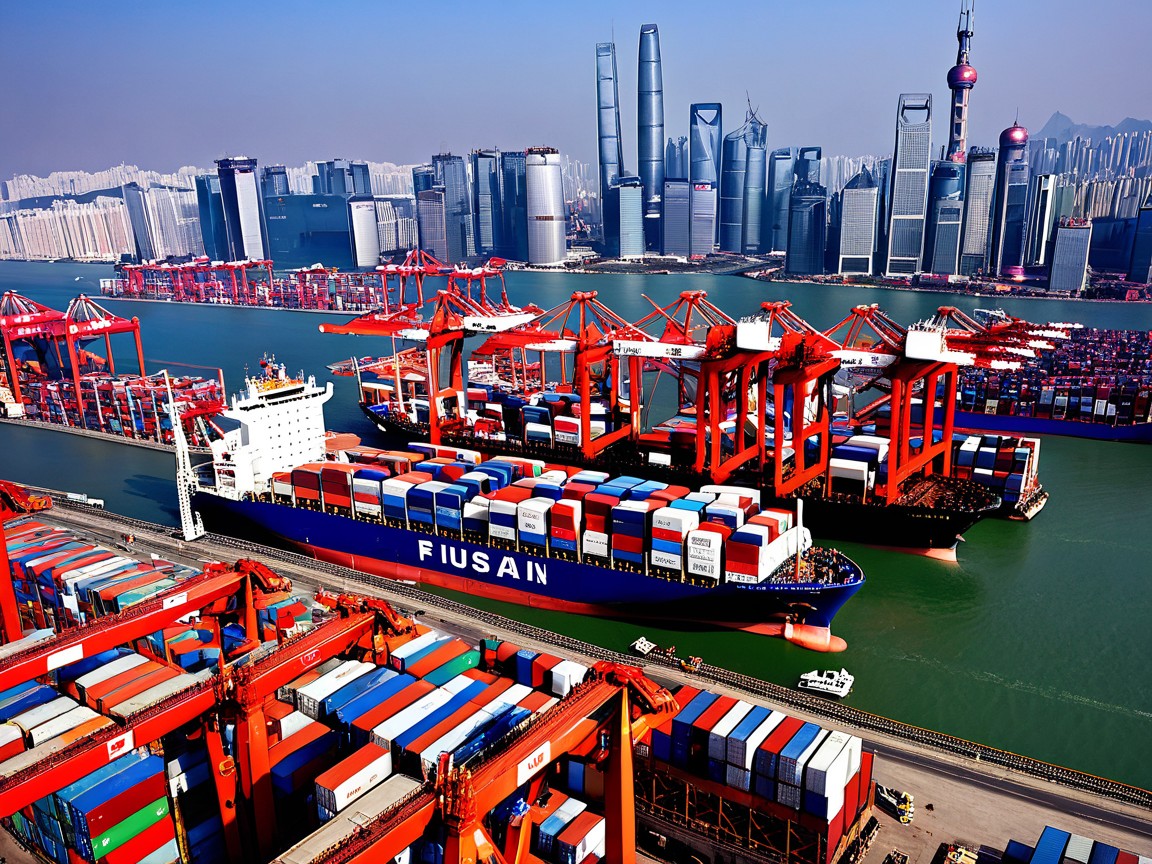"China's Bond-Buying Surge: Impacts and Opportunities for Global Importers"
China’s Bond-Buying Surge: Key Insights and Strategic Implications for Importers with China Agent Ltd
The recent upswing in bond purchases within China reflects broader economic trends that importers should watch closely. Understanding the drivers behind this activity can provide insights into possible economic challenges, financial shifts, and opportunities for businesses involved in importing from China. Here’s what the bond-buying frenzy might mean for importers and how China Agent Ltd can assist in navigating these changes effectively.
1. Economic Uncertainty and Risk Aversion
Signals of Economic Slowdown: Increased demand for government bonds highlights investor risk aversion, often associated with economic instability. This trend could hint at a slowdown in China’s production capabilities, potentially impacting import timelines and order reliability.
Deflationary Pressures Impacting Supply Chains: Sustained deflation can dampen consumer spending, prompting reduced production volumes, which may affect the supply chain’s reliability. Past crises, such as the 1997 Asian Financial Crisis, demonstrate that deflationary environments can significantly disrupt production and distribution, potentially complicating import planning.
2. Financial Market Volatility
Currency Volatility and Cost Implications: Bond market activity can cause fluctuations in the Chinese Yuan, affecting import costs and necessitating financial strategies for managing currency risk. For instance, during the 2015 Chinese stock market crash, the Yuan’s volatility impacted importers’ pricing and profit margins.
Liquidity Strain on Financial Institutions: Smaller banks facing increased regulatory scrutiny could experience liquidity issues, impacting credit availability for suppliers. A notable example is the 2019 Baoshang Bank takeover, which underscored potential liquidity disruptions that can cascade into broader supply chain delays and require importers to pre-plan finances.
3. Regulatory and Policy Shifts
Central Bank Actions Impacting Import Financing: The People’s Bank of China (PBOC) may adjust interest rates or policies in response to bond market shifts. Such changes could influence borrowing costs and payment terms, impacting import budgeting. Notably, the PBOC’s rate cuts in 2020 affected global business financial planning amid pandemic disruptions.
Increased Scrutiny of Financial Institutions: Regulatory tightening, especially on regional banks, can lead to stricter controls on financing options for suppliers. The 2018 crackdown on China’s shadow banking sector serves as a reminder of how intensified scrutiny can limit credit, potentially impacting supplier operations.
4. Supply Chain Implications
Supplier Financial Health: Economic pressures that drive bond-buying can strain suppliers financially, potentially affecting their ability to meet quality standards and delivery schedules. The 2008 financial crisis exemplified how economic downturns can impact suppliers’ stability, highlighting the need for importers to monitor suppliers’ financial resilience closely.
Inventory and Pricing Adjustments: Deflation could temporarily benefit importers with lower prices, yet sustained deflation may indicate broader economic challenges. Careful inventory and pricing strategies become essential to balancing short-term gains against long-term market shifts.
5. Strategic Considerations for Future Planning
Diversification as a Risk Mitigation Strategy: The economic landscape in China reinforces the importance of supply chain diversification. Exploring additional manufacturing hubs across Asia can reduce dependency on a single country, offering importers greater stability.
Proactive Risk Management: The current climate calls for proactive risk strategies, such as robust contracts, buffer stock management, and contingency planning to safeguard against potential supply disruptions.
6. Leveraging Emerging Opportunities
Negotiation Advantages: Economic uncertainty can create favorable conditions for renegotiating contract terms with suppliers. Importers might secure better pricing, payment flexibility, or quality guarantees as suppliers seek stable business relationships.
Investment in Innovation and Alternatives: Economic slowdowns often spur innovation, prompting businesses to explore new sourcing, technologies, and production methods that offer long-term resilience. This can be a prime time for importers to consider alternative markets and advanced supply chain solutions.
How China Agent Ltd Can Assist Importers
China Agent Ltd offers a range of tailored services to support importers in navigating the challenges and opportunities arising from China’s economic shifts:
Economic and Regulatory Monitoring: With local expertise, China Agent Ltd continuously monitors China’s economic environment and policy changes, keeping clients informed about shifts that may impact importing strategies.
Contract Drafting and Negotiation: We assist clients in developing robust contracts that protect their interests, including clear terms for pricing, quality, and compliance standards.
Supply Chain Mapping and Risk Analysis: Our team helps importers map their supply chains, identify potential risks, and explore alternative suppliers to ensure continuity.
Strategic Negotiation: Leveraging local insights, we negotiate favorable terms, from pricing to regulatory compliance, helping importers optimize supplier relationships.
Risk Management Solutions: China Agent Ltd provides comprehensive risk management support, such as buffer stock management, diversification strategies, and contingency planning.
Technology Integration: We help integrate advanced technologies, like AI and IoT, to enhance supply chain visibility, efficiency, and resilience, ensuring importers are well-prepared for market changes.
Conclusion
China’s bond-buying activity signals potential economic changes with implications for importers. By working closely with China Agent Ltd, businesses can adopt vigilant economic monitoring, proactive risk management, and strategic planning to reinforce their supply chains against uncertainty. Importers who leverage these insights and prepare for possible shifts will be well-positioned to navigate challenges and capitalize on new opportunities in a dynamic market.

